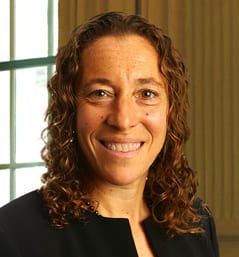By Andrew Cohen

Everywhere he looks, Berkeley Law Professor Steven Davidoff Solomon sees the signs—empirical, anecdotal, dollar—of mergers and acquisitions (M&A) becoming a lava-hot legal landscape.
“It’s approaching a $4 trillion per year industry,” said Solomon, who writes a weekly New York Times column called “The Deal Professor.” Co-faculty director of the Berkeley Center for Law and Business (BCLB), Solomon spent a decade as an M&A attorney in the United States and Europe. He sees “a growing practice area and a place where our students increasingly go. I have 100 students in my M&A class this spring and had a similar number in the fall.”
As the field’s importance soared in recent years, so did Solomon’s desire to convene annual forum where experts would discuss unique issues facing tech and other local industries. Co-sponsored by BCLB and Cleary Gottlieb Steen & Hamilton, this year’s event—“M&A, Antitrust and the Board Room in 2017: Challenges and Conundrums for the West Coast”—will take place January 30 in San Francisco.
More than 300 people, including prominent business development directors and the general counsels of many top area companies, are attending. “We’ve built the preeminent west coast gathering of practitioners and academics in the capital markets and M&A space,” said Adam Sterling ’13, BCLB’s executive director.
With domestic corporate deals cresting and global M&A activity at an all-time high, shareholders have boosted the stocks of both takeover targets and acquiring companies. Amid that climate, Sterling believes the assembled investment bankers, venture capitalists, transactional lawyers and corporate scholars will “have plenty to discuss.”
M&A in the startup space
The opening panel will track the evolution of startup M&A. Panelists include Google Head of Corporate Development Don Harrison and Antonio Garcia Martinez, author of the best-selling book, Chaos Monkeys: Obscene Fortune and Random Failure in Silicon Valley.

The session will provide “a real-life perspective from different players in the M&A ecosystem,” said fellow panelist and Berkeley Law graduate Stephanie Brecher ’93. “We’ll address topics such as down-market exits, valuation, exit timing and corporate venture capital; how we think about and treat these issues internally, and how we—sitting with our various hats on—balance the needs and desires of the various parties to achieve optimal outcomes.”
As general counsel at New Enterprise Associates in Washington, D.C., Brecher handles deal execution, portfolio management, liquidity transactions and risk management within her company’s investment activities. Previously, as a corporate law firm partner in Palo Alto, she represented venture capital funds, private equity sponsors and companies in M&A transactions.
“I enjoy spending time with, and imparting whatever wisdom I have, to young lawyers and law students interested in venture capital,” Brecher said. “It has been inspiring to watch BCLB’s amazing progress in bringing startup/entrepreneurial courses to Berkeley Law and increasing the number of opportunities for students and other community members to engage in this area.”
The horizon ahead
A panel on the future of competition in the tech industry will include Google Chief Economist Hal Varian, former dean of UC Berkeley’s School of Information, and former Berkeley Law Professor Howard Shelanski ’92. Now administrator of the U.S. Office of Information & Regulatory Affairs, Shelanski previous served as the Federal Trade Commission’s Bureau of Economics director and the Federal Communication Commission’s chief economist.

Solomon and Berkeley Law Visiting Professor Jill Fisch are on the day’s final panel, “M&A in the Board Room and the Courts.” They will be joined by Delaware Supreme Court Chief Justice Leo Strine, Jr., Goldman Sachs M&A Group Managing Director Lisa Coar and Robbins Geller Rudman & Dowd partner Randall Baron—a former prosecutor who specializes in challenges to M&A deals and has recovered hundreds of millions of dollars for shareholders.
The group will “really dig into both policy and the law at a very deep level,” Solomon said. “A lot of this will focus on how Delaware law regulates M&A deals and how tech companies have in the past few years run increasingly afoul of these rules.”
Solomon and Fisch recently studied the link between merger litigation and shareholder voting by analyzing 453 large public company mergers from 2005 to 2012, when litigation challenged more than 90 percent of them. Their ensuing paper with Fordham Professor Sean Griffith, one of Corporate Practice Commentator’s top 10 corporate and securities law articles of 2015 along with another merger litigation paper by Solomon, largely dismissed the value of such litigation—and helped lower its frequency.
Calling the M&A environment “dynamic and complex,” Fisch said its rules and business conditions “have changed dramatically in the past several years and continue to evolve. M&A has also become increasingly important to San Francisco area companies, as an alternative to the traditional IPO, as a way to grow the company—and for early-stage participants to benefit from the success of their innovation.”